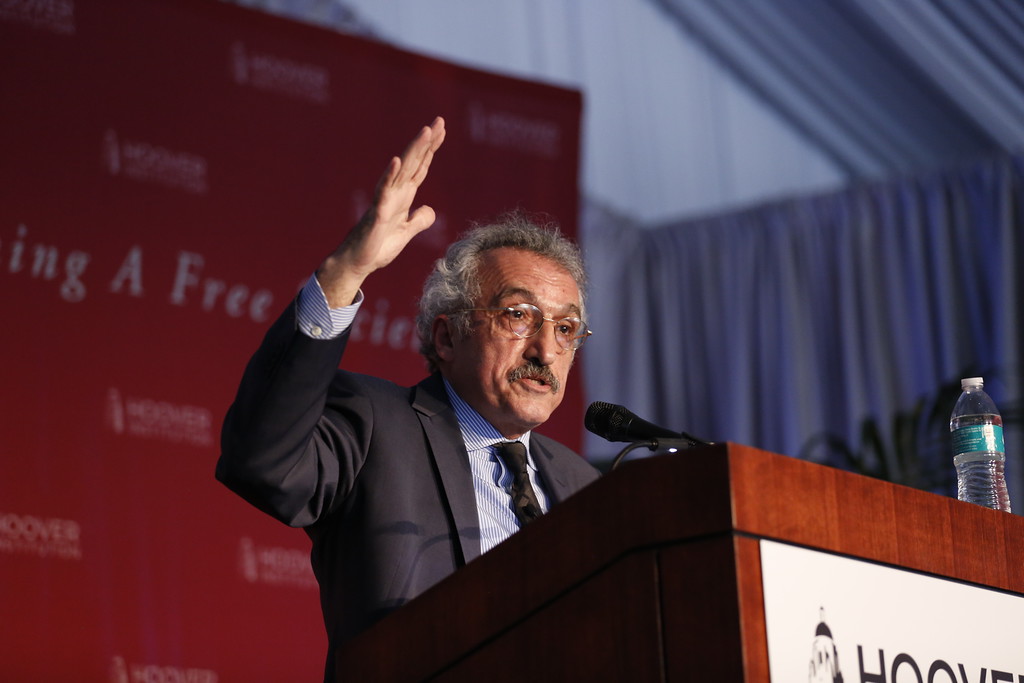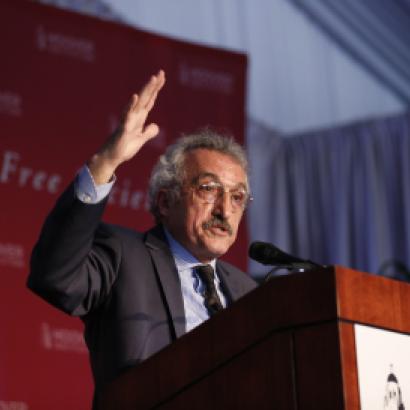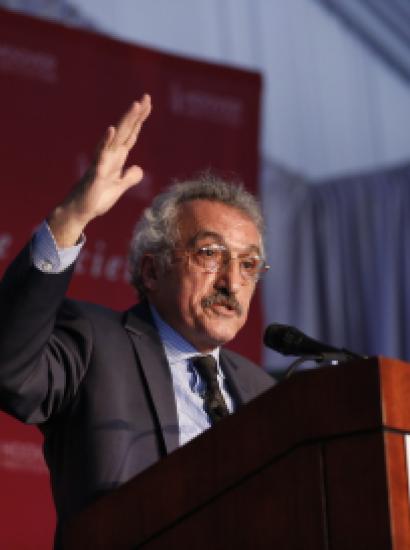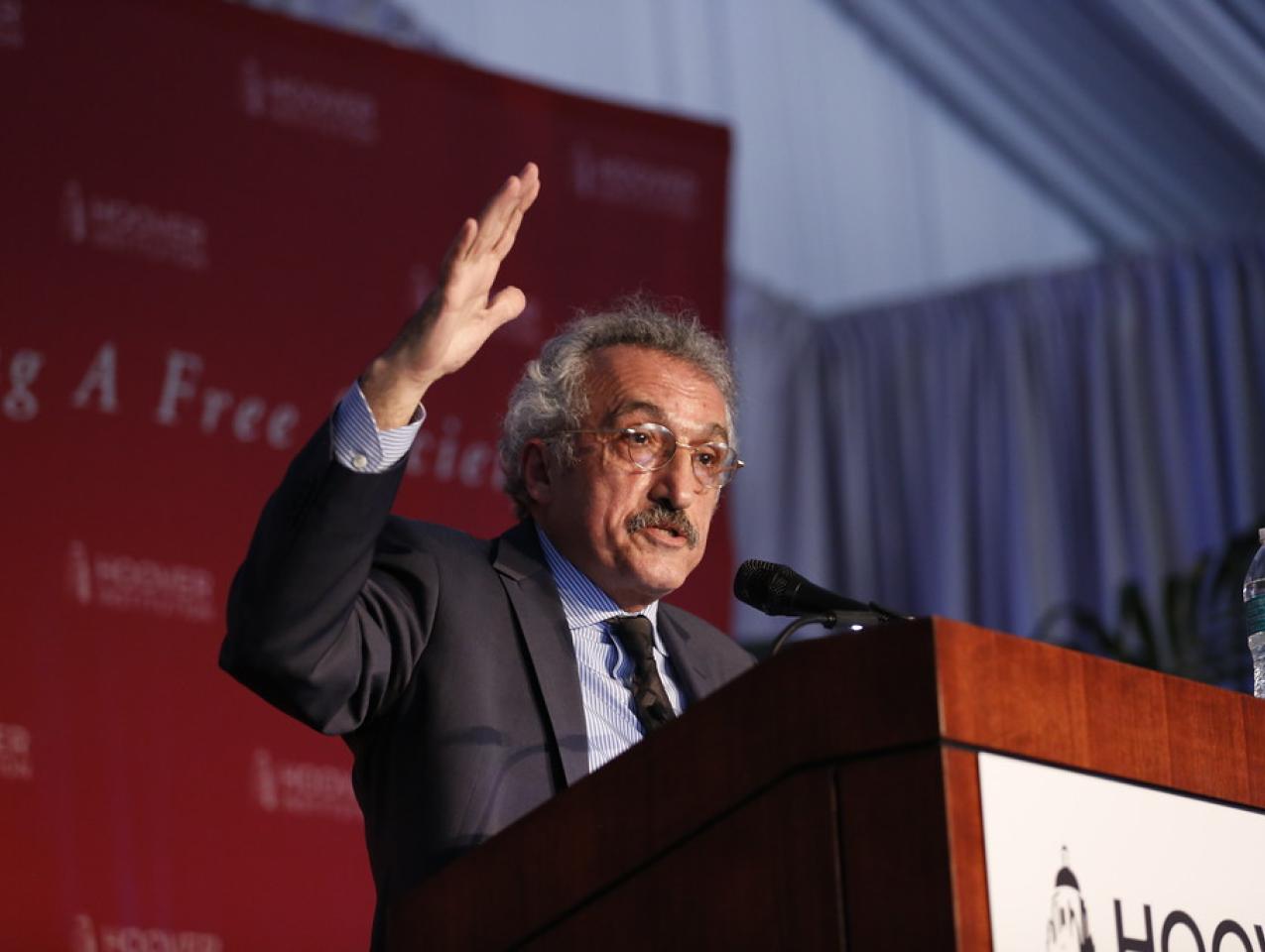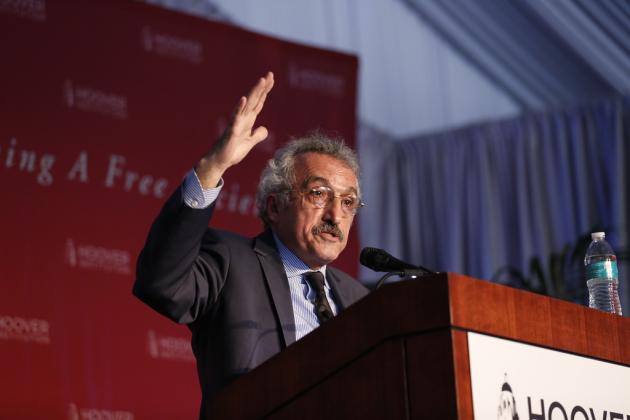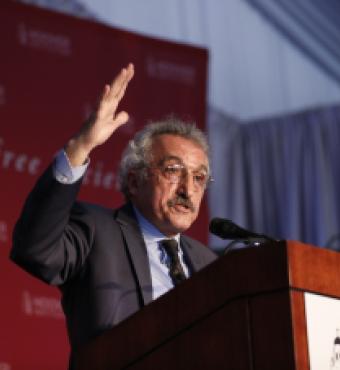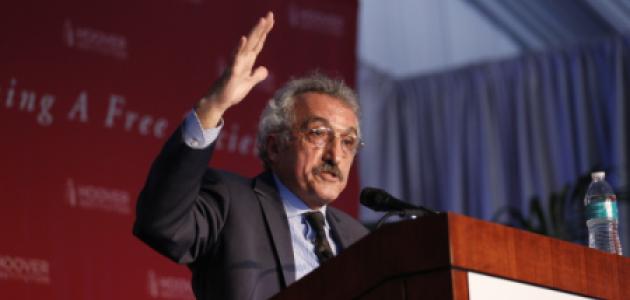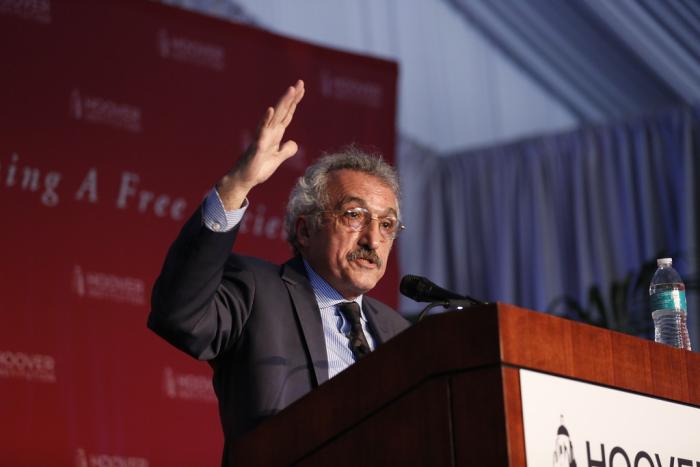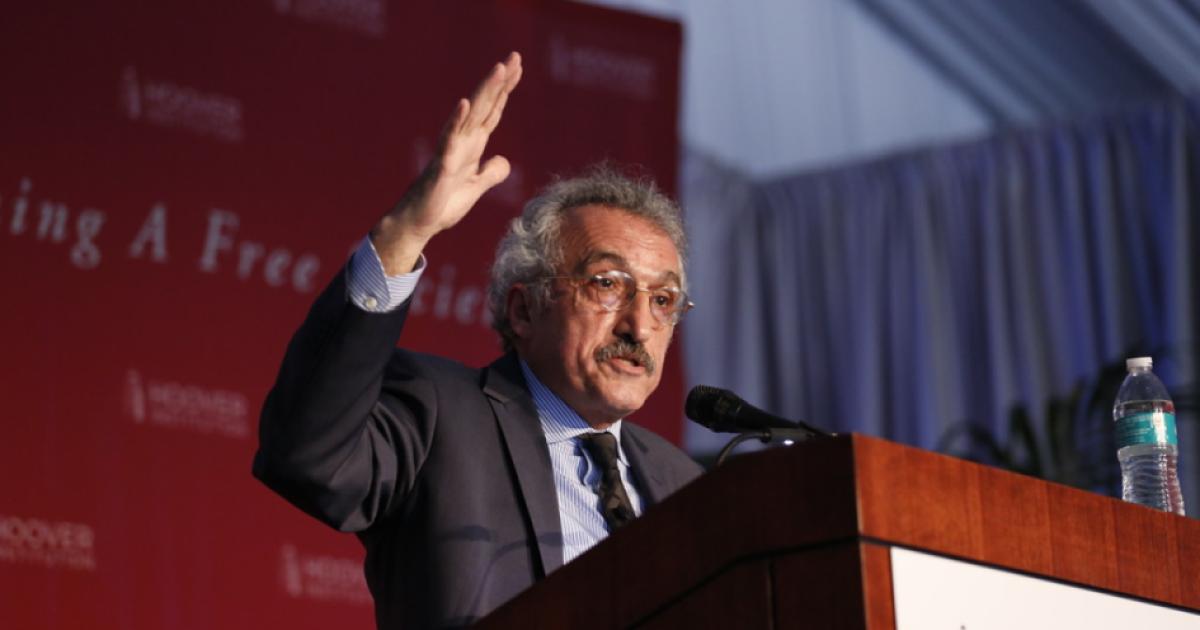- Security & Defense
- US Defense
- International Affairs
- US Foreign Policy
- Terrorism
According to Abbas Milani, crafting cohesive policy to deal with instability and threats in the Middle East requires understanding the ideological, social, and regime-based catalysts of unrest. He explains the return of puritanical Islamist ideology as a reaction to the stagnation of Islamic societies relative to their western counterparts. This trend is not new, but such factors as oil wealth, social media, and communications technology have given it unprecedented strength. Milani stresses that this movement is approaching a dangerous crisis point, one that that, unfortunately, policy makers in the west are failing to adequately address.







